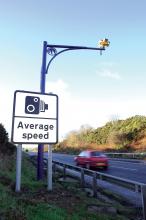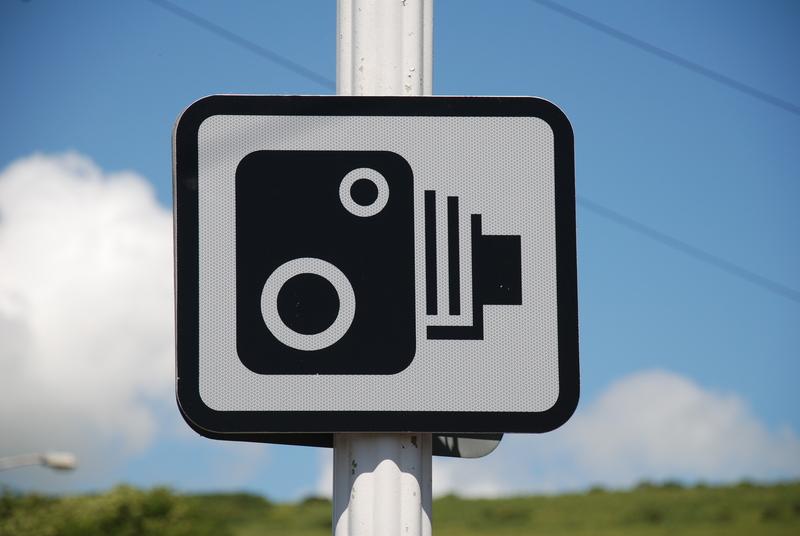
Increasing the capability of automatic number plate recognition should go hand-in-hand with efforts to ensure number plates' integrity, says the ESVA's Viv Nicholas
Before we apply increasingly sophisticated technology to Automatic Number Plate Recognition (ANPR), says the European Secure Vehicle Alliance's (ESVA's) executive director Viv Nicholas, there is a lot we can do to make the task of vehicle recognition simpler by addressing issues relating to the number plate itself.But, he says, how the number plate is valued - in all senses of the word - varies widely from country to country. He highlights the UK's policy on vehicle number plate procurement, which currently allows for something of the order of 40,000 suppliers, as representing the worst of all possible solutions and an example to the worldwide community of how not to do things. The situation, he feels, is especially hard to countenance given that ANPR was invented in the UK and that the country has since gone on to become one of the world's most enthusiastic proponents and users of the technology. ANPR's proliferation and the growing number of applications, he says, mean it is time to work towards an internationally common situation which realises the plate's true worth - even to the extent of following the example set by those countries which produce plates in their national mints.
"The assumption that giving the market free rein results in the best possible outcome for all concerned just doesn't hold true in the case of number plates.The European Secure Vehicle Alliance
The ESVA can trace its history back to 1992. It started out concentrating on tackling the issue of vehicle theft and in the UK in particular, which whilst having some of the safest roads in the world also has one of the worst records on car crime. Nicholas styles his interest as that of a concerned citizen, even though the Alliance has always operated as an associate parliamentary group providing advice to UK Parliamentarians in both the House of Commons and House of Lords and counts local authorities, police forces, several equipment suppliers and consumer bodies among the organisations it represents. The development of the UK Police's National ANPR Data Centre has led the ESVA to focus more attention in this area over the last year Despite the move to commodification, prices of plates in the UK are still high because the system of supply has become too diverse and inefficient. If one looks at Sweden, which has a single-source arrangement, for example, the price to the end-user is two-thirds that of the best price in the UK.
"Happily, I don't think that what the UK has done is common. Within the European Union, for instance, many countries rely on a single source. Others source on a regional basis. In many cases, the supply of the plate is tied to the supply of vehicle registration documents."
Developments pertaining to number plates need to be approached with more political rigour, Nicholas says: "Things have tended to just 'rub along' in a sub-optimal manner. The plate industry wouldn't normally attract attention. But the growth of ANPR is pushing us to take another look."
The Swedish system of plate issue referred to briefly above is a rather better example of how to do things, according to Nicholas.
"Since 1972, Sweden has had a single manufacturer fulfilling what is just one small process within a national infrastructure. Effectively, this is an integrated system with a franchise arrangement; one supplier is told what to do by a national licensing body. Over time, the system has been refined and now ties together the plate's date of manufacturer and the VIN number of its host. It's a system which is reflected in the majority of European countries and is a far cry from what happens in the UK, where there is a serious and obvious strategic misalignment which needs to be addressed."
Chipping and vanity plates
The electronic chipping of number plates has quite a number of advocates and there have been examples made and tested. However, a chip has both value and integrity; Nicholas says that means that locating a chip on a plate might not be the best solution: "It's probably a better idea to put it somewhere where it is hidden and protected, rather than having it exposed. The automotive industry is certainly capable of doing this but it would need better coordination than we have at the moment."Another consideration is whether or not you'd want chips to have access to some form of power; powered chips are much easier to read than unpowered ones. If you're using a passive chip, then it probably ought to reside behind the windscreen and not on the plate. If a chip has value, then don't make it easy to steal. Instead make it secure by design such that users are less likely to be potential victims of crime. Number plates are already highly prized by criminals; in Australia and the UK plates are now the most stolen components of a vehicle, having replaced car stereos and the like."
Vanity plates are another issue. Nicholas says that he has fewer objections to these than one might at first presume.
"Put aside for a moment the issue of graphics," he continues. "If you just want to use digits and letters in amusing combinations I think that's fine if they're applied correctly - characters in the right fonts and spaced correctly such that they remain legible. Let people pay to do that - it puts much-needed revenue back into the system and that's got to be an advantage. But we need to come down hard on people 'customising' plates - using a '1' and a '3' to make a 'B', for instance. Then, you get into the rather more serious issue, potentially, of plate duplication. In some countries, such as Australia where the plate system operates state by state, it's possible for the 'same' plate to be issued even within the legal system. We don't need to complicate matters further.
"We could also look again at what Sweden does: it offers the title to a plate for a limited number of years. Again: design a system which allows people to pay for the combinations they want but which limits the number of suppliers to ensure compatibility."
Plate standardisation
Number plates can be a ready identifier of a vehicle's geographic or national origin. As such, the idea of a 'universal' plate can excite rather more emotion among the jingoistic. However, the subsuming of national or regional identity has to be seen in the context of increasing mobility, says Nicholas."Having the same plate everywhere is a difficult call politically. Stakeholders need to see the value. But if we want freedom of movement, if we want to address the revenue and enforcement issues as fully as we can, then it has to be considered. We need to think about how we achieve a situation where people see the plate as a central part of their mobility - something that allows them to be more effective in their daily lives. It certainly wouldn't be inappropriate if, internationally, we agreed the most appropriate plate configurations and locations and then went after standardisation.
"There are also issue relating to sizing and positioning: do we push for same-sized plates front and back, and for front plates to become standard? Licence plate capture from the front has a number of advantages, not least the ability to link the vehicle's and driver's identities.
"When you really dig deep, there aren't really that many big players in the plate manufacturing sector, despite the fact that barriers to entry to the market are really quite low - especially for acrylic plates. The potential for standardisation is quite high but we should respect the heritage and usage of number plates in all countries."Type Approval - a blessing or a curse?
In some respects the Type Approval process can be unhelpful, says Nicholas, as it is serving to blur systems manufacturers' focus. "There seems to be a feeling among ANPR manufacturers that once they get through Type Approval they've arrived and the world is their oyster," he continues. "The efforts that companies have to put into getting through the process encourage this attitude in some respects. The reality is that we need to look at things in totality, and that would drive a whole different dynamic. Whether ANPR is applied to support enforcement or some form of distance-based road charging, there needs to be an end-to-end view. Look at the criminal justice system, for instance: the police, courts, prisons and probation service all do their bit within a larger whole. It's no good breaking things up into their constituent parts. The same applies to ANPR: it needs to be regarded as part of a whole, not a discrete issue or technology."
Pushing ANPR's case
Moving beyond the issues pertaining to the number plate, Nicholas is keen to see the ANPR industry take a more collective proactive stance on future deployment. He thinks that there is a lot that can be learned from another, already well-established technology: CCTV."The CCTV industry is trying to tackle issues such as codes of practice regarding privacy and data protection and I think that the ANPR industry could take a more proactive part in the debate. Without doing that, there is a risk that the ANPR sector will be seen as being less effective than it otherwise might have been. That means the sector's manufacturers and suppliers coming together more effectively with the regional and national ITS associations. Again, international cooperation isn't altogether inappropriate - not least because cross-border enforcement is an increasingly important issue and there are universal needs to be addressed."










